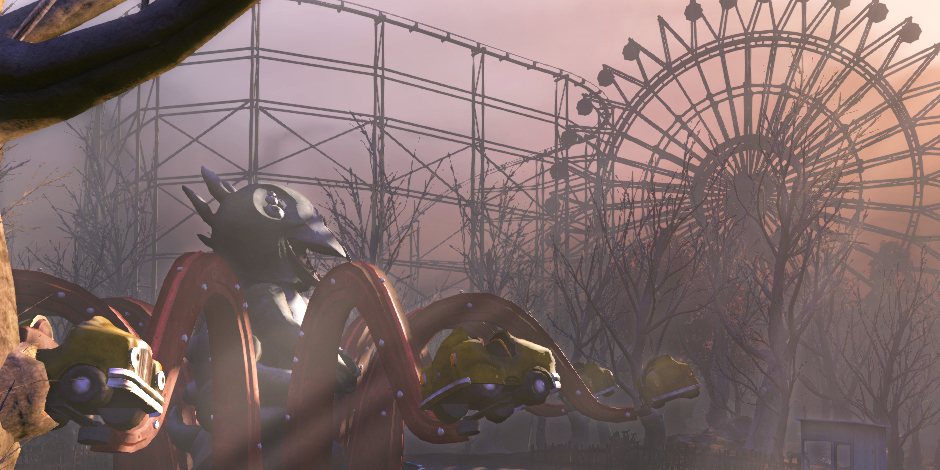Why you can trust GamesRadar+
Upon landing on gloomy Solomon Island, the first of three current locales, our questing began in earnest, with the initial tasks coming from the frazzled staff of a zombie-besieged police department. We like how the quest system limits you to just a handful of quests at a time, which puts a greater emphasis on their individual storylines.
TSW tries to keep things fresh with occasional sneaking missions and puzzle-focused investigation quests. While we appreciate the concept, these pace-changers often felt superfluous or frustrating, either because the relatively crude MMO game engine wasn't up to creating a fun stealth dynamic or, more commonly, because an extremely obtuse riddle stopped us dead in our tracks. Being stuck for long periods (at least by MMO standards) just wasn’t fun, which drove us to Google. We ran into plenty of players who absolutely loved the investigation missions, but we found them more frustrating than fun.
Beyond the scattering of high-concept quests, MMO business as usual dominates. WoW-like tedium of the "kill x monsters, gather x items" variety had undeniably taken hold by the time we got to Solomon Island's third and final zone. A bit later, in Egypt, this was amply illustrated by two concurrent quests which, combined, had us kill some monsters in the front yard, then kill some monsters in the backyard, then kill some monsters inside the building, then enter the basement (a solo instance) to kill yet more. Call us crazy, but we expected internecine shadow conflicts to be a lot more interesting.
It's strange, too, how antisocial TSW feels. Outside of the token PvP arenas and five-player dungeons, there is very little need to group or interact with other players, and the PvE questing contains enough solo instances to disrupt even those players who actively try to group. Despite joining a cabal (guild) of cool folks and running dungeons now and then we spent the vast majority of our time playing solo, making our TSW adventure feel more massively single-player than massively multiplayer.
TSW's PvP offerings are modest. At any time you can queue up and wait to go to El Dorado or Stonehenge - a large arena or a small one - or warp rather immediately to Fusang Projects, a persistent PvP space built around territory capture. We didn't like Stonehenge's tiny cluster of an arena, but El Dorado and Fusang were an agreeable break from tiresome PvE questing. But fun? That brings us to combat.
More info
| Genre | Role Playing |
| Description | TSW takes place in the modern day, only in a skewed universe in which every myth, legend, and conspiracy theory is utterly, horribly true. This heightened reality serves as the backdrop for a millennia-spanning struggle between three secret societies: the craven, amoral Illuminati, the rigid, authoritarian Templars, and the chaotic, mysterious Dragon. As a new agent of your chosen faction, you'll bring your newfound paranormal abilities to the aid of your masters' agenda. |
| Platform | "PC" |
| US censor rating | "Mature" |
| UK censor rating | "" |
| Release date | 1 January 1970 (US), 1 January 1970 (UK) |



